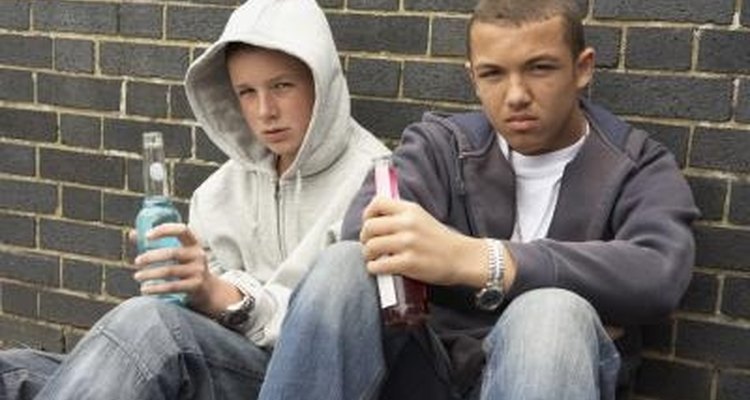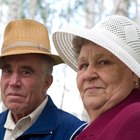
Children face a tremendous amount of peer pressure from all areas of life. As a result, children may become violent, hang out with the wrong crowd, skip school or perform poorly in class, start using drugs and conduct other forms of bad behavior. There are many places to consider to send your child, including boot, wilderness and therapeutic camps.
Boot Camp
The traditional style of boot camps entail strict, military-like discipline, drills as well as fear and intimidation. The belief is that bad children can be scared straight in just a few months. The reality is that children are only taught to say and do the right things at that particular moment in time, which doesn't necessarily impact or change their bad behavior. St. John's Military School (sjms.org), for example, does the opposite. This military-style boot camp provides a structured educational environment and a safe residential campus. Its cadets learn leadership skills, build confidence, respect and character as well as a high degree of self-discipline.
Wilderness Camp
Though it may sound like a recreational destination, wilderness camp plays an important role in helping children who suffer from behavioral disorders such as attention deficit disorder and attention hyperactivity deficit disorder as well as those who may suffer from substance abuse. Wilderness camps, such as the Wilderness Quest Treatment Program, (wildernessquest.com) may provide intensive wilderness therapy education, a 12-step program and a nurturing safe environment for young adults. Oftentimes, wilderness camps provide therapists that work with the child as well as the family as a whole. Children who are enrolled in wilderness camps may learn interpersonal skills, responsibility of their actions, and gain new ambitions in life.
Therapeutic Camp
Some camps use scare tactics and intimidation to "shape up" troubled kids. Other camps provide a therapeutic learning environment where children may learn how to change their behavior naturally by working with horses. The Arivaca Boys Ranch, (arivacaboysranch.com) for example, provides troubled boys age 13 to 17 the opportunity to work on a ranch as well as continue their high school education. Using equine therapy, the ranch teaches patience, communication, overcoming adversity and more. The ranch also provides individual, group and family therapy, workshops and seminars, a daily ranch schedule as well as an accredited high school education.
Residential Treatment Centers
If your child is involved with illegal substances or suffers from depression, anxiety or a learning disorder, then consider sending them to a residential treatment center. Youth Care Inc., (youthcare.com) for example, provides a thorough assessment thanks to its team of therapists, social workers, psychologists and psychiatrists. A treatment plan is created based on your child's needs. In addition to therapy, your child also receives substance abuse counseling, quality of life training and an education. The average stay at this residential therapeutic center is 115 days, though other centers may require more or less time.
Related Articles

Arizona's Free Summer Programs for Kids

Summer Programs for Kids in Greeley, CO

About Free Programs for Troubled Teens

Boot Camp for Kids in North Carolina

List of Charitable Organizations in Ohio

How Does an Overbearing Mother Affect a ...

Preschool Teacher Requirements in ...

The Roles of Older Siblings

How to Become a Foster Parent in ...

Activities and Meeting Places in ...

What Are the Benefits of Outdoor ...

Free Summer Camps for Kids in Sacramento

Federal Grants for Married Couples

Aesthetic Laser Requirements in Ohio

Description of a Child Care Center

What Is the Downtime for a Photofacial?

Top 10 Daycare Centers in the US

Grants for Private Christian Schools

Traumatic Effects of a Bad Marriage on ...

Shoe Cobbler Schools
References
Writer Bio
Susan Diranian is a writer for various online publications and magazines, specializing in relationships, health, fashion, beauty and fitness. She holds a Bachelor of Arts in English with a concentration in nonfiction writing and editing.
Photo Credits
BananaStock/BananaStock/Getty Images